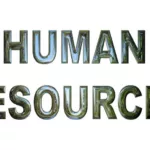With growing food shortages, and some estimating that we could even run out of food within the next 10 years, the need for a sustainable solution has never been greater. This crisis has been driven in part by mass meat consumption, with meat easily the most harmful form of food to our planet. The fact that meat takes 75 times more energy to produce than corn demonstrates just how much of a burden it has been on the planet’s resources.
This makes the figures behind our levels of meat consumption extremely worrying, with countries like the U.S and Australia consuming meat at astonishing rates—the average American eats a staggering 120 kg of meat each year. That said, it is not just our meat consumption that is to blame; the dairy industry is also leaving a huge energy footprint.
Add to that the health and ethical concerns of our current eating habits, and it is clear that something seriously needs to change in the way we consume food. In the face of this, a number of startups have decided to take the bull by the horns and produce sustainable alternatives to some of the most popular and wasteful foods, that could well be the catalyst for pulling ourselves out of our current mess. From authentic meat alternatives to eggless eggs, here are the startups ushering in the future of food.
Powdered food startups
One way that startups are shaping the future of food is by developing powdered food products, with companies like Huel creating eco-friendly nutritionally complete powdered food alternatives. By simply adding water to the powder, consumers can drink these products like they would a smoothie. Consisting of a mix of protein, carbs and fat, as well as vitamins and minerals, they contain everything needed for a healthy diet.
Powdered food can help cut food waste in a number of ways. Unlike many types of solid food that quickly go off and are then just thrown out, the long shelf life of powdered food products means consumers are much more likely to get through them before this happens. They are also not in danger of being rejected by supermarkets for being the wrong shape or colour, and are significantly more resilient to being damaged in transit. Powdered food products cut waste through their minimal packaging, and save energy by reducing the electricity and gas use needed to cook food.
Consumers have reacted enthusiastically to the launch of these products—Huel have sold over 12+ million meals worldwide, and other powdered food startups have seen similar levels of success. As well as the health and environmental benefits of powdered food alternatives, there are a number of other advantages. Consumers can save substantial time spent on preparing and cooking meals, eradicating the time spent shopping for food, and also minimise the levels of washing up.
Lab meat startups
Despite the constant calls for us to reduce our meat consumption and the increasing number of people in developed countries going vegetarian or vegan, it seems our taste for meat is so ingrained that it will be difficult to break the habit any time soon. Although meat alternatives like soy burgers have been around for decades, they are often criticised for not tasting like the real thing, making the drive to reduce meat consumption an uphill battle.
However, recent years have seen a step up in innovation of creating authentic meat alternatives, spearheaded by a handful of adroit startups. Perhaps the most notable company in the field is the Los Angeles-based Beyond Meat. Launched in 2009, the startup has developed a number of plant-based meat alternatives that have strived to be as authentic as can be, using no artificial ingredients.
The Beyond Burger has proven particularly popular—Leonardo DiCaprio has even recently become an investor—available in around 11,000 stores across the US, and is slated to make its debut in the UK in 2018. Replicating the texture and taste of beef, the burger even ‘bleeds’ when cooked thanks inclusion of beetroot. It is not only Beyond Meat driving the creation of authentic meat alternatives, with startups like Memphis Meats developing similar products. Hopefully the authenticity of these alternatives may make people think twice about the amount of meat they consume, and perhaps even lead people to a more sustainable long-term vegan diet.
Startups creating eggless eggs
Another way startups are shaping the future of food is through the creation of eggless egg alternatives, such as Follow Your Heart’s VeganEgg. Primarily made up of algae flour and protein, it can be used to replace eggs when creating anything from cookies to omelettes. San Francisco based startup Hampton Creek have now taken this even further by pioneering eggless scrambled eggs. Founded in 2011, the company are best known for their vegan mayonnaise products and spent four years working on the eggless scrambled egg recipe. They finally announced in December 2017 that the ‘Just Scramble’ egg dish would be rolled out in San Francisco restaurant Flore.
According to CNN, “Just Scramble is a light-yellow liquid that congeals like a real egg when exposed to heat,” largely made from mung bean protein. Not only can Just Scramble be eaten by itself, but can also be used in baked goods as well as parts of other dishes. Whilst Flore is currently the only outlet publicly selling the product, Hampton Creek founder and CEO Josh Tetrick says it will appear in more US restaurants, grocery stores and fast food chains throughout 2018.
With the planet dogged by food shortages caused by our reckless consumption of its finite resources, the need for sustainable food is more pressing than ever. Luckily, the innovation of startups in creating a range of different eco-friendly food alternatives means the future may not be all doom and gloom.








